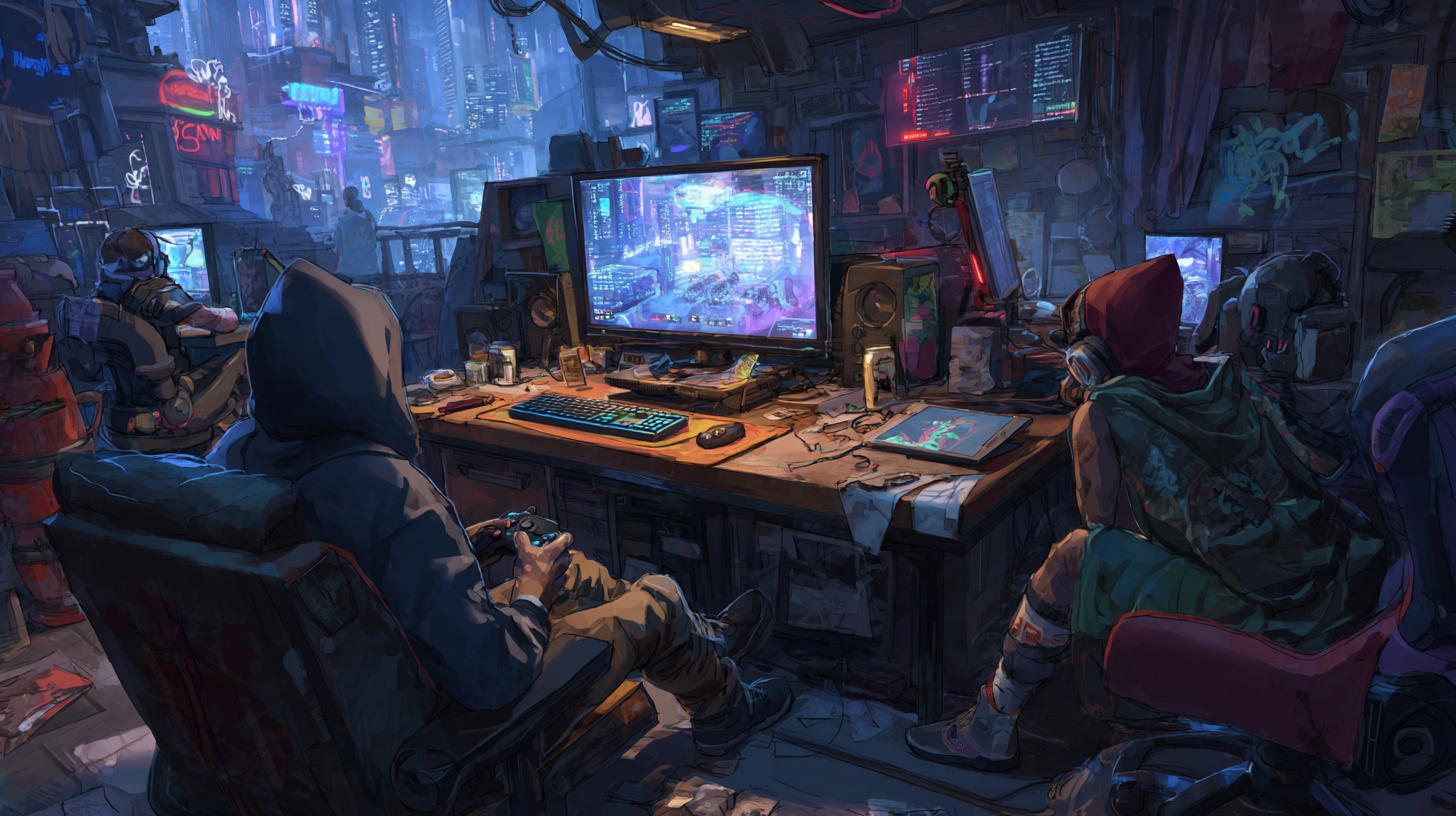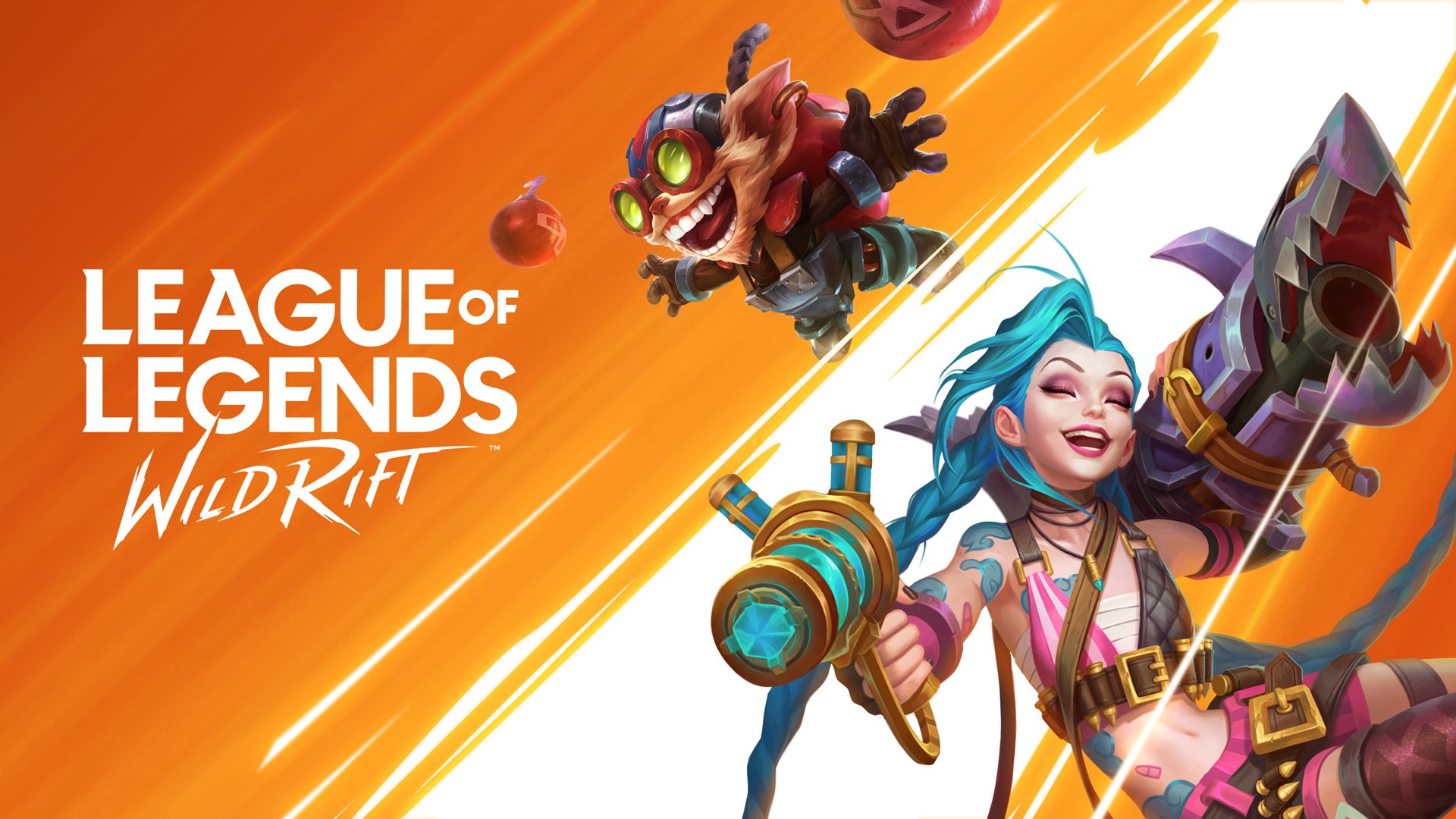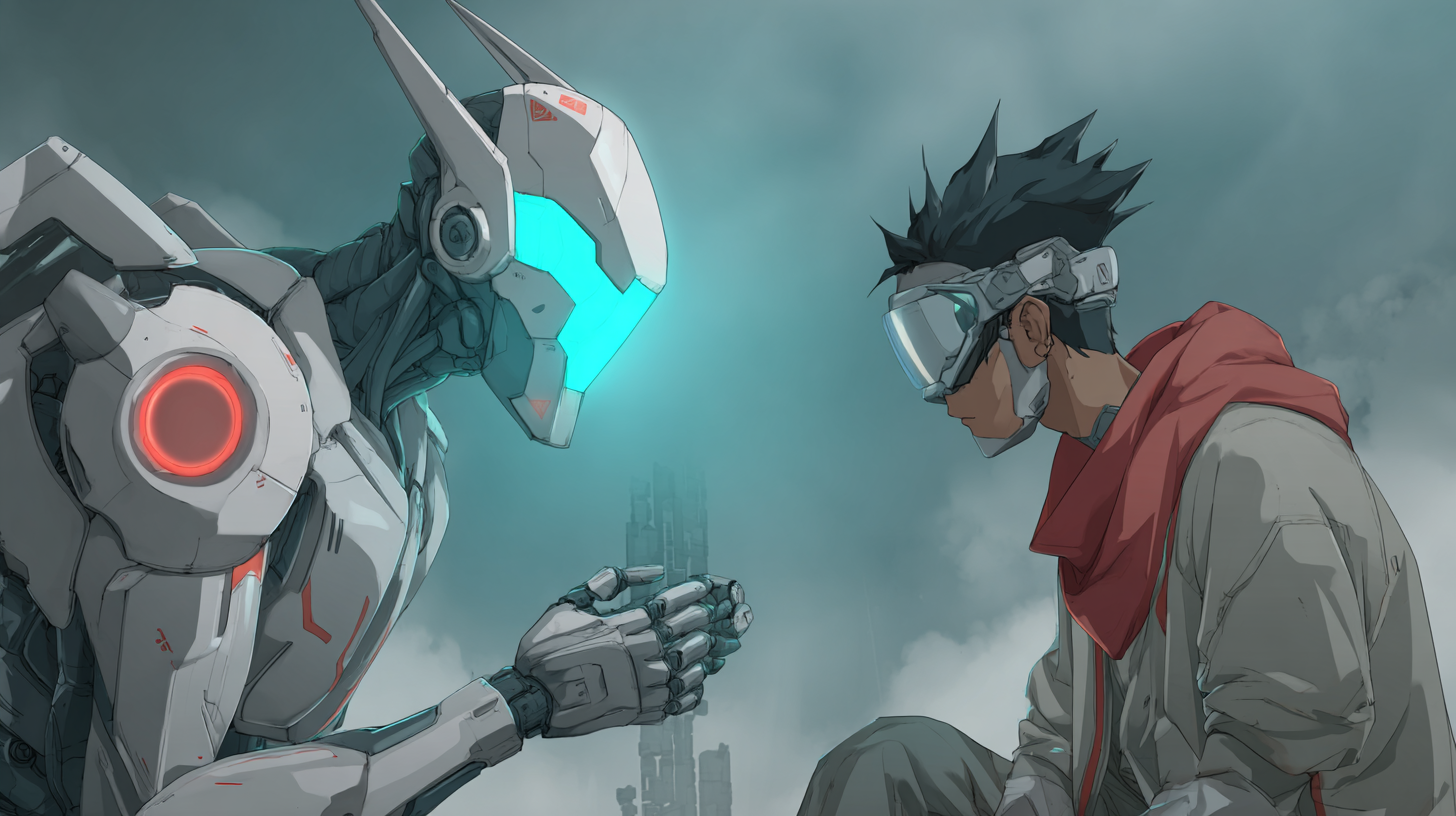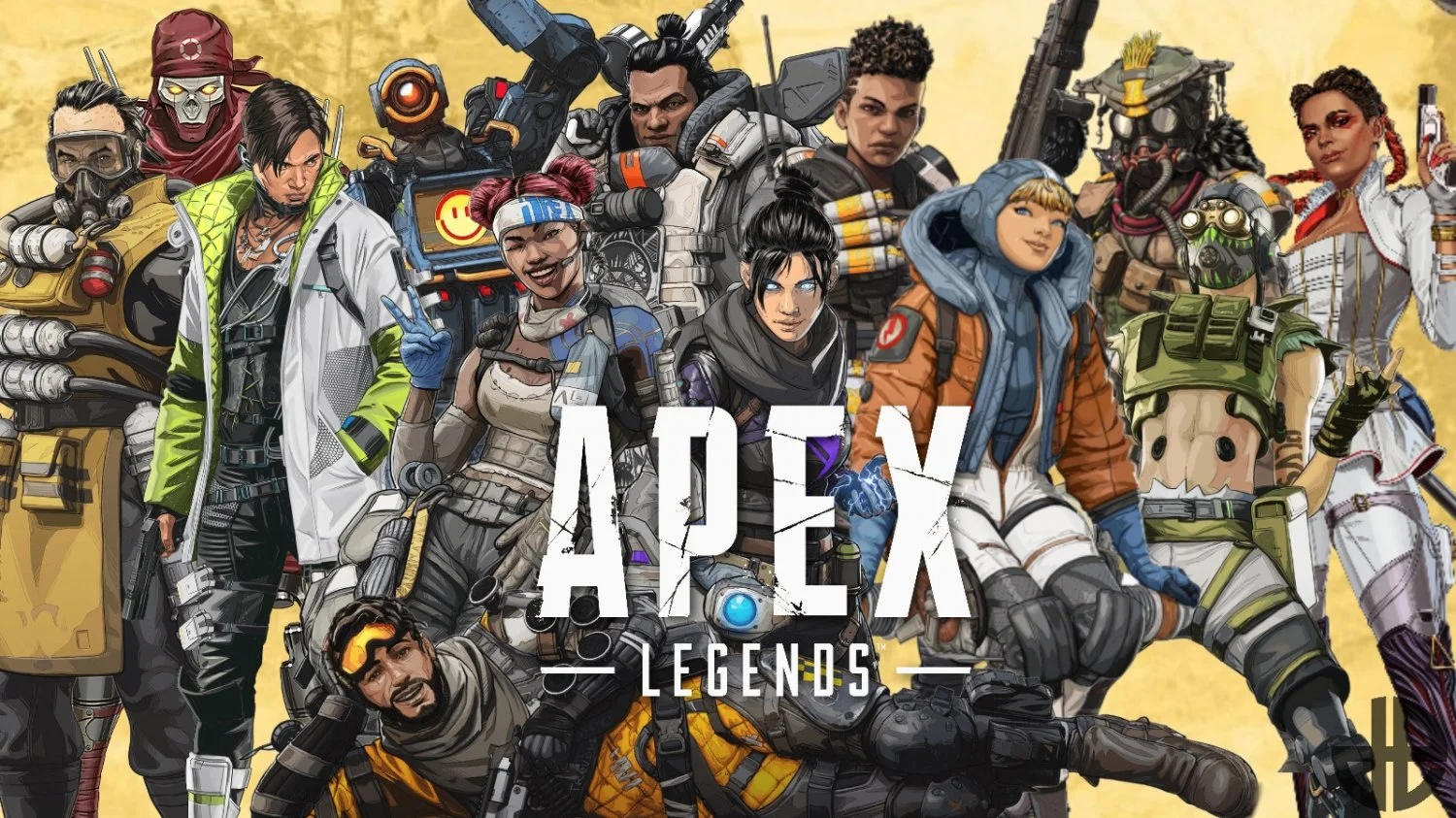"LFG 2 more for Molten Core, need healer and tank, PST."
If you raided in early World of Warcraft, you spent hours typing variations of this message in trade chat. If you didn't get responses fast enough, you'd copy-paste it again. And again. And again. Finding a group could take longer than actually completing the content.
Twenty years later, we're still looking for groups – but the methods have transformed dramatically. From bulletin board posts to instant mobile swipes, the evolution of LFG systems reflects the broader story of gaming's social transformation.
Introduction
Looking for group systems are as old as multiplayer gaming itself. The moment games required cooperation, players needed ways to find teammates. What started as simple forum posts and IRC channels has evolved through distinct eras, each solving previous limitations while introducing new challenges.
This evolution wasn't just technological – it reflected changing player expectations, game design philosophies, and social norms within gaming communities. Understanding this progression reveals why modern platforms work the way they do and where teammate discovery is heading.
In this historical deep-dive, we'll trace LFG systems from their primitive beginnings through each transformative era, examine what worked and what failed, and explore how current solutions are finally addressing problems that have plagued gamers for decades. While finding compatible teammates can be challenging across all eras, platforms like Jynx represent the latest evolution in making teammate discovery faster, smarter, and more successful than ever before.
The Forum Era (2000-2010)
Before social platforms, before Discord, even before dedicated guild websites, gamers found teammates through forums.
GameFAQs and Game-Specific Boards
Early 2000s LFG happened on general gaming forums:
The Process:
- Find relevant forum section
- Create new thread: "[Game] Looking for [Role/Class]"
- List your details (server, faction, availability)
- Check back periodically for responses
- Exchange contact information (AIM, ICQ, email)
- Coordinate outside the forum
Problems:
- Response time measured in hours or days
- No real-time communication
- Information scattered across hundreds of threads
- Dead threads cluttered forums
- No way to verify player skill or reliability
- Time zone chaos (posters rarely mentioned)
What Worked:
- Permanent record of interaction
- Could include detailed explanations
- Community moderation kept obvious trolls away
- Built familiarity through repeated posting
Guild Recruitment Forums
Organized guilds maintained recruitment sections:
The Format: Structured applications including:
- Character name and class
- Current gear/progression
- Previous raid experience
- Availability schedule
- "Why do you want to join us?" essay
The Process:
- Submit application
- Wait days for review
- Participate in trial runs
- Vote by existing members
- Acceptance or rejection
This formalized approach worked for serious endgame content but created massive barriers for casual play.
The Pain Points
Forum-based LFG suffered from:
Discoverability:
- Had to know which forum to check
- Multiple game-specific sites
- No centralized search
- Regional fragmentation
Timing:
- Asynchronous communication
- Missed opportunities
- Stale posts stayed visible
- No live status indicators
Verification:
- No way to confirm claims
- Rampant skill misrepresentation
- Ninja looters and trolls
- Reputation systems primitive
This is exactly why modern matchmaking is revolutionizing how gamers connect – it takes all these coordination problems and solves them automatically through real-time matching and verification systems.
The In-Game LFG Era (2008-2015)
Game developers recognized the pain points and built native solutions.
WoW's Dungeon Finder (2009)
Blizzard's Dungeon Finder revolutionized casual group content:
How It Worked:
- Click button, select role
- Automatic matchmaking across servers
- Teleport directly to dungeon
- Play with random teammates
- Disband after completion
The Innovation:
- Zero coordination required
- Cross-realm player pools
- Role-based team composition
- Instant gratification
The Tradeoffs:
- Completely anonymous (no community building)
- Zero social interaction required
- Toxic behavior without consequences
- Skill variance extreme
- No persistence (never see teammates again)
League of Legends Matchmaking (2009)
Competitive games needed different solutions:
The Approach:
- Automated skill-based matching
- Hidden MMR system
- Quick queue times
- Forced team compositions (eventually)
What It Solved:
- Fast matching (30 seconds to 2 minutes)
- Generally fair skill distribution
- No pre-coordination needed
What It Missed:
- No compatibility matching
- Toxic teammates unavoidable
- No choice in who you play with
- Solo queue frustration
The Automated Matchmaking Shift
This era established automated matching as the standard, but revealed critical limitations:
Gains:
- Speed and convenience
- Accessibility (anyone could play)
- Consistent availability
Losses:
- Community connections
- Player agency
- Social accountability
- Long-term teammate relationships
Games traded community for convenience, creating the "lonely multiplayer" phenomenon.
The Discord Era (2015-2022)
Discord became the de facto LFG platform for an entire generation of gamers.
LFG Channels and Servers
Discord's structure enabled dedicated LFG communities:
Typical Format:
- Dedicated #lfg channel in community servers
- Template messages: "LF2M [Game][Mode][Rank] - @mention if interested"
- Role selection for notifications
- Voice channels for immediate grouping
The Advantages:
- Real-time responses (seconds to minutes)
- Built-in voice chat integration
- Community context (see player activity)
- Persistent friend lists
- Cross-game communities
The Evolution: Sophisticated LFG Discord servers emerged with:
- Automated post cleanup (delete after 30 minutes)
- Bot-based matchmaking tools
- Role verification systems
- Rating/vouching mechanisms
The Discord LFG Problems
Despite improvements, Discord LFG inherited and created new issues:
Signal-to-Noise Ratio:
- Channels moving too fast to track
- Must monitor constantly or miss opportunities
- Notifications overwhelming
- Repeated posting necessary
Information Overload:
- Messages disappear quickly
- Can't search historical posts effectively
- Multiple servers to check
- Different formats per community
"LFG Fatigue": The exhausting cycle:
- Post looking for group
- Wait for responses
- No replies after 5 minutes
- Post again
- Repeat until you find group or give up
Verification Challenges:
- No built-in rank verification
- Must trust player claims
- Screenshot sharing tedious
- Fake ranks common
Ready to find your perfect gaming squad? Jynx's swipe-to-match interface eliminates the endless posting cycle by showing you compatible teammates actively looking to play, with verified ranks and compatibility matching built in.
The Modern Platform Era (2020-Present)
Purpose-built matchmaking platforms emerged to solve Discord's limitations.
Specialized Gaming Social Apps
Dedicated platforms focusing specifically on teammate finding:
Key Features:
- Profile-based discovery
- Skill verification through API integration
- Compatibility algorithms
- Persistent teammate relationships
- Cross-game support
Examples of Approaches:
- Swipe-based matching (Tinder-style for gaming)
- Automated suggestions based on playstyle
- Community-based discovery
- Scheduled session matching
The Innovation: Combining Best Elements
Modern platforms synthesized lessons from previous eras:
From Forums:
- Detailed profiles
- Persistent identity
- Community building
From In-Game Systems:
- Quick matching
- Skill verification
- Role-based filtering
From Discord:
- Real-time availability
- Direct communication
- Community integration
New Additions:
- Compatibility matching beyond just skill
- Mobile-first design
- Privacy-first approaches
- Smart algorithms
Verification and Trust Systems
Modern platforms solve the "fake rank" problem:
Official API Integration:
- Riot Games API for League/Valorant
- Steam API for CS2 rankings
- Blizzard API for Overwatch
- Epic Games integration
What This Enables:
- Real rank display (no lying about Diamond when you're Gold)
- Performance history
- Champion/hero pools
- Play frequency
Privacy Balance: Verification without requiring:
- Permanent account linking
- Sharing login credentials
- Exposing full gaming history
Compatibility Beyond Skill
The biggest innovation: matching more than just rank.
Traditional Systems Match:
- Skill level (rank/MMR)
- Role preferences
- Maybe language
Modern Systems Add:
- Playstyle compatibility (aggressive vs tactical)
- Communication preferences (chatty vs quiet)
- Schedule alignment (time zones, typical play times)
- Personality factors (competitive intensity, tilt resistance)
- Game mode preferences (ranked grind vs casual fun)
This addresses the fundamental problem automated matchmaking never solved: skill-matched teammates who can't stand playing together.
What Modern Solutions Get Right
Current-generation platforms learned from two decades of iteration.
The Jynx Approach
Jynx represents the latest evolution in LFG systems:
Swipe-to-Match Discovery:
- Browse compatible teammates like modern dating apps
- See profiles before committing
- Mutual interest required
- Control over who you connect with
Privacy-First Handle System:
- Username#discriminator format (like Discord)
- No real names required
- Controlled information sharing
- Protect identity until you choose to connect
Verified Ranks:
- Riot API integration for automatic verification
- No fake ranks possible
- Optional (not mandatory)
- Accurate skill matching
Quick Discovery Process:
- Minutes to find compatible teammates
- No endless posting and waiting
- Active players only
- See who's available now
The "J'ai de la Chance" Innovation
Auto-match button for instant group formation:
How It Works:
- Click "I'm feeling lucky"
- Algorithm assembles optimal group from available players
- Balanced team composition
- Compatible schedules and playstyles
- Ready to play immediately
Why It Works:
- Removes decision paralysis
- Faster than manual browsing
- Algorithm optimizes better than manual selection
- Perfect for "just want to play now" moments
Multi-Game Support
Unlike game-specific LFG systems, modern platforms support:
- 14+ competitive games
- Shared social graphs across games
- Teammates who play multiple games with you
- Broader gaming communities
The Future of Teammate Discovery
Where is LFG heading in the next five years?
Predictive Matching
Next-generation systems will:
- Learn your preferences over time
- Predict compatible teammates before you search
- Suggest optimal play times
- Anticipate when you'll want to queue
Cross-Platform Integration
Breaking down platform barriers:
- PC and console players finding each other
- Cross-game friend networks
- Universal gaming social graphs
- Platform-agnostic communities
Voice and Communication Evolution
Moving beyond text and basic voice:
- Real-time translation for international teams
- Voice modulation for privacy/safety
- Communication style matching
- Integrated strategy tools
Enhanced Compatibility Factors
Future matching will consider:
- Tilt patterns and mental resilience
- Learning speed and improvement curves
- Strategic thinking vs mechanical skill focus
- Leadership vs support personalities
- Long-term goals (casual fun vs competitive climb)
The goal: teammates who not only match your skill but genuinely enhance your gaming experience.
Lessons From 20 Years of LFG
What we've learned from two decades of iteration:
Speed vs Quality: Instant matching isn't valuable if teammates are incompatible. The sweet spot combines quick discovery with quality vetting.
Automation vs Agency: Fully automated systems remove frustration but eliminate choice. Humans want some control over their teammates.
Verification Matters: Without skill verification, matching quality collapses. Players will misrepresent themselves when there's incentive to do so.
Community Persists: Despite automation, players want persistent teammate relationships, not endless random matching.
Privacy Is Essential: As gaming social platforms matured, privacy protections became mandatory, not optional.
One Size Doesn't Fit All: Different games, modes, and player types need different matching approaches.
Conclusion
The evolution of LFG systems mirrors the broader evolution of online gaming itself – from niche hobby to mainstream social activity. What started as text posts on forums has transformed into sophisticated platforms using verification systems, compatibility algorithms, and mobile-first design to connect teammates in seconds.
Each era solved specific problems while revealing new challenges. Forums provided persistence but lacked speed. In-game matchmaking delivered convenience but lost community. Discord enabled real-time coordination but created information overload. Modern platforms synthesize these lessons into solutions that are fast, accurate, and social.
The future of teammate discovery lies in smart systems that understand not just your skill level but your playstyle, communication preferences, schedule, and personality. Traditional LFG made you work to find teammates – modern solutions make teammates come to you based on genuine compatibility.
Download Jynx today and experience the latest evolution in teammate discovery – verified ranks through official game APIs, swipe-to-match discovery for quick connections, and compatibility matching that goes beyond skill to find teammates you'll actually enjoy playing with.
Frequently Asked Questions
Q: Why did in-game matchmaking systems kill guild communities? A: Automated matchmaking reduced the practical need for guilds in casual content. When you can find dungeon groups instantly via queue, maintaining social connections becomes optional rather than necessary. Games that kept guilds relevant either: (1) made high-end content require coordinated teams, or (2) provided social features beyond just finding groups.
Q: Is Discord still the best platform for finding gaming teammates? A: Discord remains excellent for coordinating with existing teammates but has significant limitations for finding new ones: LFG channels move too fast, there's no verification system, and you must repeatedly post and monitor. Purpose-built matchmaking platforms now handle discovery better, while Discord excels at communication after you've found teammates.
Q: How do modern platforms verify player ranks without being invasive? A: Through official game APIs like Riot's developer portal. Platforms request temporary, read-only access to confirm your current rank, then store only the verified rank tier (not your full account details). This proves you're actually Diamond without requiring permanent account linking or access to private information.
Q: Why haven't game developers built better native LFG systems? A: Many have tried, but face conflicts of interest: developers want you playing their game specifically, while players often play multiple games. Third-party platforms can offer cross-game social graphs, multi-game friend lists, and broader communities that single-game developers can't justify building. Additionally, developers focus on core gameplay while specialized platforms focus entirely on the social matching problem.
Q: What's the biggest difference between old forum LFG and modern matchmaking platforms? A: Speed and verification. Forum LFG took hours or days with zero skill verification. Modern platforms match you in minutes with verified ranks through official APIs. The shift from asynchronous (post and wait) to synchronous (see available players now) fundamentally changed the teammate discovery experience.



